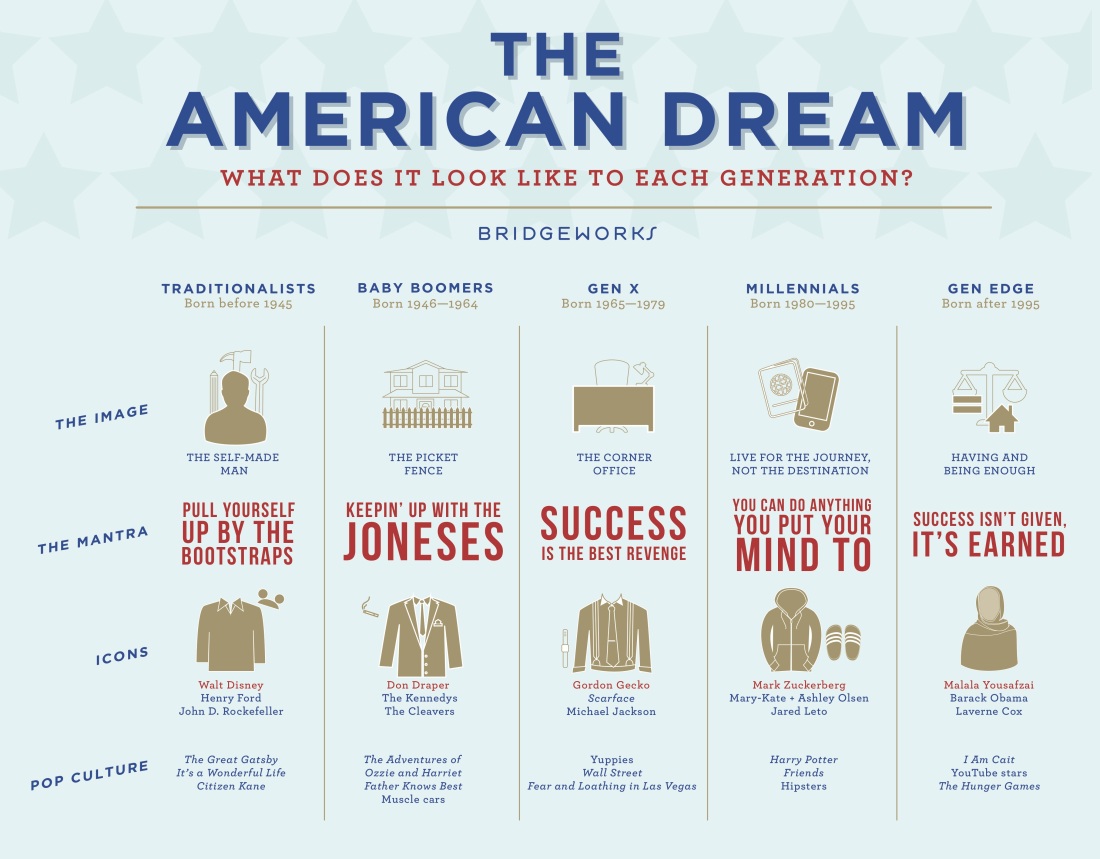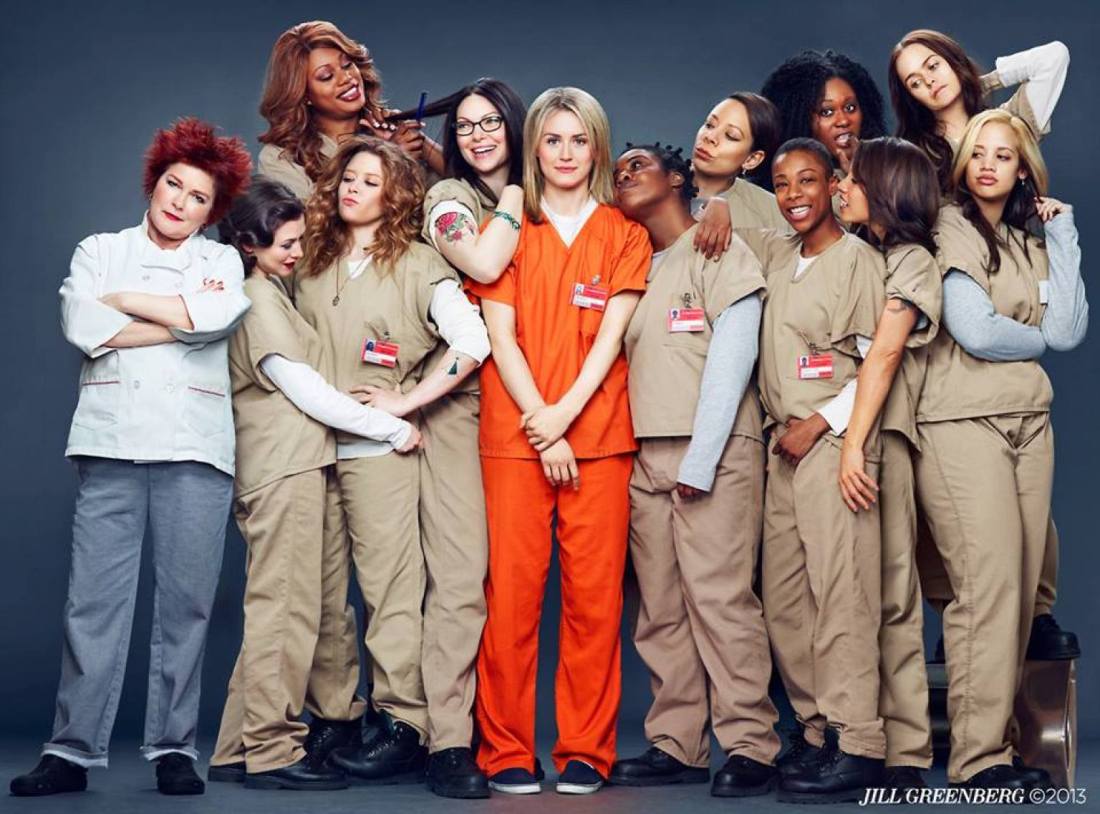Let’s take a journey through popular Netflix original series “Orange Is The New Black” shall we? Netflix advertises “Orange is the New Black” as a series about “a privileged New Yorker who ends up in a women’s prison when a past crime catches up with her in this Emmy-winning series from the creator of “Weeds” (2017), however Netflix fails to include that the privileged New Yorker is a white women known as Piper Chapman. I choose to ask if the title “Orange is the New Black” is a microagression because I think of the orange symbolizing prison, and orange becoming the new black, to me, defines slavery within the prison industrial complex. If Piper Chapman is the star of the show, and she is white, why is the show not named “Orange is the New White”? Think about that as you read through the following paragraphs.
Suzanne M. Enck and Megan E. Morrisseys’ peer-reviewed scholarly journal, “If Orange Is the New Black, I Must Be Color Blind: Comic Framings of Post-Racism in the Prison-Industrial Complex” published in Critical Studies in Media Communication (2016) describes how color blindness and comic framing allows for whitewashed colorblind media. Enck and Morrissey evaluate prisons, whiteness, and colorblind racism through comic fool Piper Chapman, star of the show “Orange Is The New Black”. The authors “argue that the first season of OITNB encourages white audience identification primarily through the show’s protagonist who, by providing a comic frame, also enables critiques of post-racial fantasies that so frequently reify existing U.S. social relations” become relatable with white experiences. The clip above from YouTube does a wonderful job representing how Piper Chapman does indeed have relatable white experiences, most prisoners of color do not.
Suzanne M. Enck and Megan E. Morrisseys’ use multiple reliable sources such as PCARE (2007) and The Sentencing Project https://www.sentencingproject.org (2014) to explain how television programming often creates “a fictional colorless world in which the ideology of the American dream dictates that anyone can succeed with hard work, and as such promotes the idea that racial inequalities have no structural or institutional origin or solution” resulting in colorblind media. Colorblind media does not accurately depict the struggles of all races, “colorblindness does not deny the existence of race but denies the claim that race is responsible for alleged injustices that reproduce group inequalities, privilege Whites, and negatively impacts on economic mobility, the possession of social resources, and the acquisition of political power”. Piper Chapman’s “race and class privilege position her as a “good (white) girl”—a status she is able to achieve by acquiescing to and complicity reproducing the authority of whiteness” while being the protagonist of a television show representing low income and minority races and race relations seems to be quite colorblind, in my opinion.

The purpose of “If Orange Is the New Black, I Must Be Color Blind: Comic Framings of Post-Racism in the Prison-Industrial Complex” is to explain how the media does not accurately represent people of color. “As audiences relate to Piper and come to sympathize with other women of color, they are led to question some especially harsh realities that stem from systemic racial/class discrimination and that are protected within powerful discourses of color blindness”. The piece is used to help readers evaluate the level of under-representation that takes place within social hierarchy’s and institutions.

“If Orange Is the New Black, I Must Be Color Blind: Comic Framings of Post-Racism in the Prison-Industrial Complex” is written for an audience with access to scholarly journals. I purpose this piece is written to inform academics, scholars, and the educated masses about the unequal representation of all races on television through the portrayal of Piper Chapman. I believe the audience also needs access to some sort of platform to watch “Orange Is the New Black” to adequately understand what the author is trying to explain and identify within comic framing.
I found this piece to be highly informative. The piece identified how Piper Chapman lessens the harsh realities of the PIC by being a ‘gateway drug’ “implying that her sanitized, upper-class whiteness is one mode of identification (albeit problematic and limited) for many viewers who may not otherwise even be exposed to alternate racial realities”. However, the piece also stated that if Piper Chapman was not the protagonist, the story-line would not have been so success, which I truly believe to be correct.
With popular media being more and more about the division of race and race relation identities, I feel popular culture reinforces racial tense. For example, “Fresh Off the Boat” is a television series that “takes a humorous look at the lives of immigrants in America”. I feel “Fresh Off the Boat” highlights some very important issues immigrants do come to face but the reality is, the television series makes light of these important issues. Although many claim “Orange is the New Black” and “Fresh Off the Boat” as series that “expanded racial divides” by providing women and people of color with significant leading roles, the roles are often limited and restricted by what is considered to be popular at the time. If you are having a hard time remember what makes something popular, I suggest going back to my earlier blog posts and rereading! Popular culture is about a lot more than what is just popular. I believe the reason “Orange is the New Black” and “Fresh Off the Boat” are popular are because they address social problems in which their audiences can relate. Eddie Huang does an awesome job explaining how “Fresh Off the Boat” brings experiences to mainstream television that have not been so easily accessible in his VICE Podcast below!
Hey Lauren,
I agree with you that “the reason “Orange is the New Black” and “Fresh Off the Boat” are popular are because they address social problems in which their audiences can relate.” The ability for people to relate to these shows helps them cope with these social problems .Your post is very detailed and informative great job.
LikeLiked by 2 people
I thoroughly enjoy this show and loved it when it first came out. I agree with the writer that it made people realize that racism still exists, that a lot of issues are still happening, and that a lot of the things those women of color went through, is not fake. It really opened a lot of peoples eyes to the harsh reality of prison and the complex and what it does to families and women, especially those of color. A lot of the time it is easy to blame the person with more skin pigmentation, but to then forget what happens to that person after they get locked up?
LikeLiked by 2 people
Lauren
This blog is very well created and chalk full of information about the show, reality, and even question parts that are in-between everything else. It holds many different perspectives on how racism and others are seen in today’s eyes as well as what conflicts people encounter depending on skin color or origin of birth. I have seen and heard many different view on how we treat others around us, but this blog definitely sums up everything in general quite nicely. Keep up the great work and do not stop asking “Who-What-Why”.
LikeLiked by 2 people
I think you did a great job in summarizing the article, and adding multiple mediums and links helped me to learn more about this topic. I can tell you put a lot of effort and passion into writing your blog post.
LikeLiked by 2 people
Hi lauren,
Great post! I agree with the conclusions you drew about OITNB and fresh off the boat. I read the same article as you, but it is great to get a fresh perspective on something i thought so much about.
LikeLiked by 1 person
Lauren-
I had just read another students post on Orange Is The New Black and thought it was great reading two different perspectives on this show. I liked that you included 4 different videos, the photo of the show and the diagram to keep the viewers, like me, entertained and engaged. I think you did a great job with this post.
LikeLiked by 1 person
You really gave a lot of information on the topic and the addition of the videos help drive the point across. I watch the first season of Orange and personally couldn’t get into it. Usually that dark humor that pokes fun at real underlying problems that happed of the hooks me right away. For some reason this show didn’t resonate with me though my wife binged watched all the seasons. Shows like this and Fresh of the Boat are great for exposing what so many cultures and economic classes have to deal with on a personal level. The humor makes it a little easier for people to ease into the topics. Awesome post.
LikeLiked by 1 person
This is some solid work. I think you provide plenty of evidence to support your claims, and I thoroughly enjoy the media elements you incorporated within the post. I agree with your points about Orange is the New Black and Fresh of the Boat, I think you provide plenty of insight within your claims. Awesome job
LikeLiked by 1 person
Hi there! Great job interweaving videos and images with your written content. I especially like that your related this topic of race in media to generational differences with the graphic comparing goals and mottos of the various generations of the last 70+ years. It’s fascinating to me how much lifestyles and mindsets are changing from year to year. I think Orange is the New Black tried to touch on this along with the issue of race politics and one thing I appreciated about the show was the representation of women: race, size, age, class, etc. Refreshing. Anyway, thank you for your post!
LikeLiked by 2 people
Love how you frame the microaggression question in the headline and follow through on that. Nice work! You sparked a terrific dialogue.
LikeLiked by 1 person